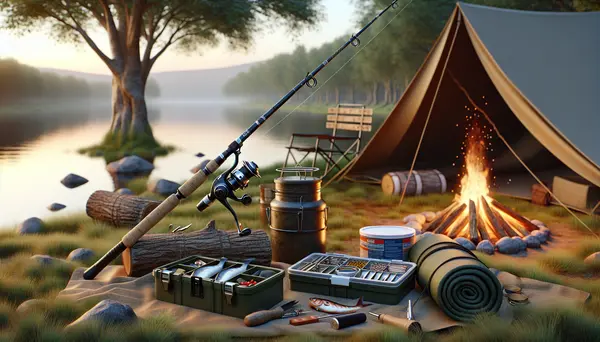Table of Contents:
Introduction to Fishing Licenses
Fishing is a popular pastime for many people around the world. Whether you're an experienced angler or just starting out, it's essential to understand that fishing isn't simply about grabbing your gear and heading to the nearest body of water. One crucial aspect often overlooked by beginners is obtaining a fishing license. This article will guide you through everything you need to know about getting one.
The Importance of Having a Fishing License
A fishing license serves as legal permission from authorities allowing individuals to fish in specific bodies of water within certain jurisdictions. It plays a significant role in conserving our natural resources by helping regulate fishing activities and protect aquatic ecosystems against overfishing.
Pros and Cons of Getting a Fishing License
| Pros | Cons |
|---|---|
| Contributes to conservation efforts | Requires time and cost to acquire |
| Gives access to certain fishing areas | May restrict fishing specie and quantity |
| Enables legal compliance and avoids penalties | May not guarantee fishing success |
Understanding Different Types of Fishing Licenses
Different types of licenses are available depending on various factors such as location, type of fish species targeted, duration (daily, annual), age group (youths, seniors), etc. For instance, some states offer separate freshwater and saltwater licenses while others provide combination licenses covering both environments.
How To Get Your Fishing License: A Step-by-Step Guide
1. Determine The Type Of License You Need:
You first need to decide what kind of fishing you plan on doing - whether it's freshwater or saltwater; recreational or commercial; daily or yearly basis etc., then choose the appropriate license accordingly.
2. Find Out Where To Purchase Your License:
This could be online via official government websites dedicated for this purpose like U.S Fish & Wildlife Service website if you're based in United States; physical locations such as tackle shops, outdoor retail stores; even some convenience stores sell them too!
3. Fill Out The Necessary Paperwork:
You'll need to provide some basic information like your name, address, date of birth and social security number (for U.S residents). Some states may also require proof of residency.
4. Pay The Required Fee:
The cost varies depending on the type and duration of license you're applying for; it could range anywhere from $10 to several hundred dollars.
Fishing License in Germany
If you are planning a fishing trip in Germany, be aware that obtaining a fishing license germany is mandatory as well. Similar steps apply: determine what kind of fishing you plan on doing, find out where to purchase your license - which can often be done online or at local authorities -, fill out necessary paperwork including personal details and pay the required fee. Note that the fishing licence germany cost might vary based on factors such as age group and duration.
Tips For First-Time Anglers
Familiarize Yourself With Local Fishing Regulations:
Different regions have different rules regarding catch limits, bait usage etc., so make sure you know them before heading out.
Pick Up A Copy Of Your State's Fishing Guidebook:
This will contain all essential information about fish species found within state waters along with their respective seasons & bag limits.
Catch And Release Practices:
If you don't intend keeping your catch then learn proper techniques for releasing fish back into water without causing harm.
In Conclusion...
A fishing license isn’t just another piece of paper – it’s an important tool helping ensure sustainable fisheries management while providing anglers legal access to enjoy this wonderful pastime. So before you cast your line, make sure to get a fishing license and follow all local regulations – it’s not just the law, but also our responsibility towards preserving aquatic life for future generations.
Your Guide to Obtaining a Fishing License
Why do I need a fishing license?
A fishing license helps contribute to conservation efforts. By purchasing a license, you are helping in protecting and preserving our natural aquatic areas.
How can I get a fishing license?
It's usually as simple as going to your local Department of Fish and Wildlife or similar agency. You can often buy them online and at many outdoor sporting goods stores too.
What documents do I need to get a fishing license?
Usually, you will need a proof of residency and your identification.
How much does a fishing license cost?
The cost varies depending on your state of residence and the type of license you want. Usually, licenses can range from $20 to $100.
Do I need a separate fishing license for saltwater and freshwater fishing?
This also depends on the state you’re fishing in. Some require separate licenses, some offer combination packages, some have additional stamps.







